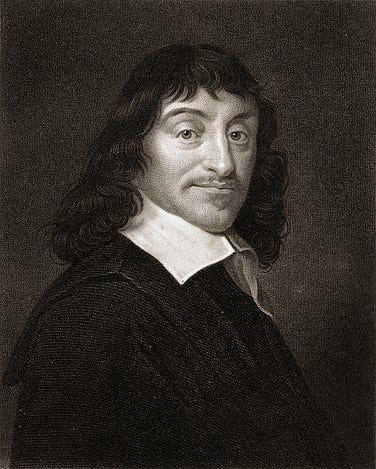|
 |
The Writer's Almanac from Sunday March 31, 2013
"Easter Morning" by Jim Harrison, from Saving Daylight. © Copper Canyon Press, 2007.
ORIGINAL TEXT AND AUDIO - 2013
Daylight Saving Time went into effect in the United States for the first time on this date in 1918. Benjamin Franklin was the first person to come up with the idea of changing our clocks to take advantage of the longer days. He was serving as a delegate in Paris in 1784, and noticed that Parisians tended to sleep late in the mornings. He wrote a tongue-in-cheek essay arguing that sunlight was going to waste in the mornings and would be much more appreciated in the evenings. By changing the clocks and shifting the daylight hours later, he wrote, people could take advantage of more natural light and save money on candles and lamp oil.
It's the birthday of philosopher René Descartes, born in La Haye en Touraine, France (1596), called the father of modern philosophy, but he considered himself a mathematician and scientist. He became interested in philosophy when he heard that the church persecuted Galileo for his scientific theories. Descartes realized some of his own theories were also controversial, so he wrote a book called Discourse on Method (1637), about the necessity of doubt in scientific inquiry. He also wrote about beginning to doubt everything about his life, even the fact of his own existence. But in the process of doing so, he realized that he couldn't doubt the existence of his own thoughts, and he produced his most famous line: "I think, therefore I am."
It's the birthday of the poet Andrew Marvell, born in Winestead, England (1621). His most famous poem is "To His Coy Mistress," about a man trying to convince a young virgin to sleep with him. It begins, "Had we but world enough, and time, this coyness, lady, were no crime," and contains the lines, "But at my back I always hear Time's winged chariot hurrying near."
Oklahoma! opened on Broadway on this date in 1943. It was based on a play called Green Grow the Lilacs (1930), by Lynn Riggs. Though the play, which was about settlers in the Oklahoma Territory, featured some old folk songs, it wasn't a musical of the Broadway variety. Richard Rodgers and Oscar Hammerstein were both admirers of the play, and they had both independently tried to adapt it to the musical format, but their respective songwriting partners — Lorenz Hart and Jerome Kern — weren't interested. So Rodgers approached Hammerstein about it. Usually, musicals were made up of fairly thin and joke-riddled plotlines that only served to string together the most important element: the songs. But Rodgers and Hammerstein were both committed to making the songs fit the story, rather than the other way around. One of Broadway's most beloved musicals, as well as one of its most successful partnerships, was born out of their collaboration.
Nobody expected the show to do very well, but Oklahoma! was an immediate smash hit, and the first big Broadway blockbuster. It ran for more than 2,200 performances.
Be well, do good work, and keep in touch.®
Garrison will be bringing his solo show to Boothbay Harbor, Maine! Check it out!
Thursday, August 8, 2024, 7:30 PM
The Opera House, Boothbay Harbor, ME
If you are a paid subscriber to The Writer's Almanac with Garrison Keillor, thank you! Your financial support is used to maintain these newsletters, websites, and archive. If you’re not yet a paid subscriber and would like to become one, support can be made through our garrisonkeillor.com store, by check to Prairie Home Productions, P.O. Box 2090, Minneapolis, MN 55402, or by clicking the SUBSCRIBE button. This financial support is not tax deductible.


